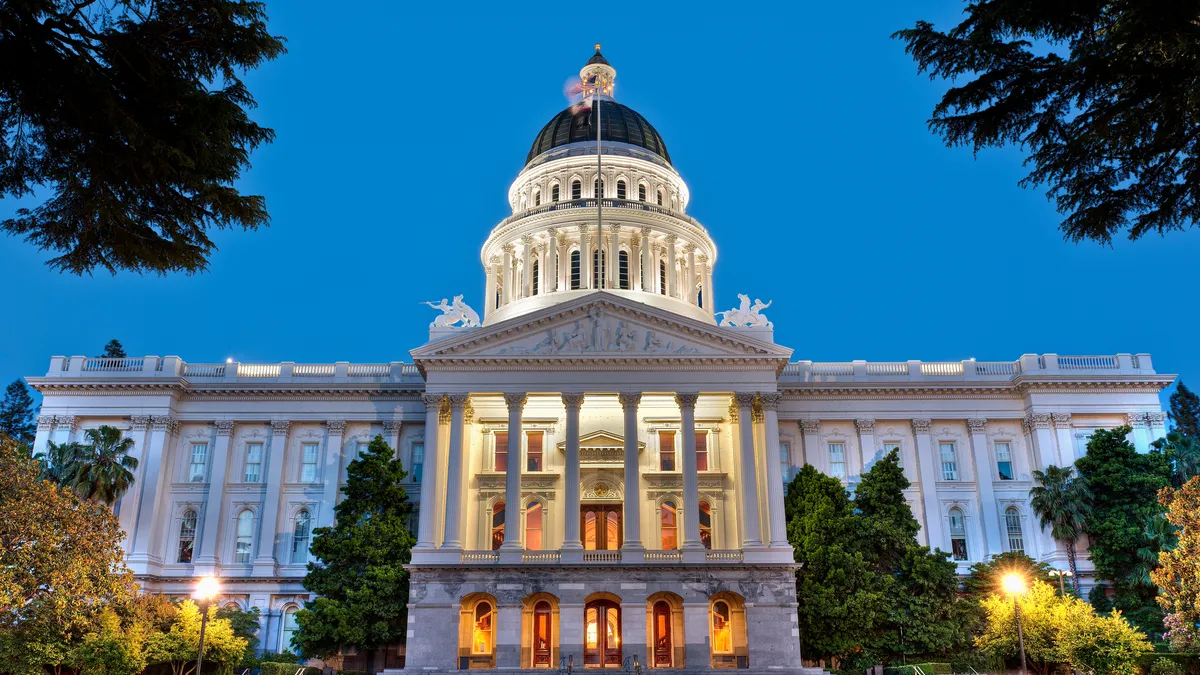Employers subject to California’s employment laws will see a few additions in 2024, according to Caroline Donelan, partner at Blank Rome. Changes will affect compensation, leave and cannabis rights, among other things.
Donelan outlined what she deemed the “top five” legal updates coming out of the Golden State in a Dec. 7 webinar.
A $16 per hour minimum wage
As some jurisdictions move to a $15 minimum wage, California will stay ahead of the curve. “In true California fashion, we saw your $15 and we raised you $1,” Donelan said. The $16 minimum wage takes effect Jan. 1 for all employers, regardless of size. Moreover, “you have to think about the fact that this not only affects your hourly workers, but this raises the minimum salary threshold for your exempt employees as well,” Donelan added. “So that now is up to $66,560 per year.”
Some California cities have higher minimum wages as well and employers also must keep an eye on industry-specific requirements. The state sets separate wage requirements for healthcare workers, for example.
Paid sick and safe leave
California employees will soon generally be entitled to five days or 40 hours, whichever is greater, of paid sick and safe leave.
Donelan said some of her firm’s clients have chosen to maintain one comprehensive PTO policy, but employers that choose this path must ensure they’re allowing workers to use time off for covered reasons. Local laws may overlap with this requirement, too, and may even conflict when it comes to documentation requirements, she noted, suggesting employers consult legal counsel before requiring documentation or disciplining an employee for failing to provide documentation.
Employers may want to make particular note of the law’s coverage of leave for the health condition of someone an employee names as their “designated person.” A traditional familial relationship is not required, Donelan said; “This is a brand new, very progressive — relatively speaking — [...] form of protective leave.”
Reproductive loss leave
California employees also will be entitled to 5 days of reproductive loss leave starting Jan. 1. The rights go beyond miscarriage, also covering failed adoptions, failed surrogacy, stillbirth or an unsuccessful assisted reproduction.
Employers will want to exercise caution when requesting information from workers for this leave, Donelan said. Because the mandate is new, “we don't have any litigation interpreting the balance of what you can ask your employees so we're typically counseling people to be very mindful of privacy considerations.”
Any information that employees provide relating to a reproductive loss should be considered confidential, Donelan advised; it should not be disclosed to anyone besides internal personnel on a need-to-know basis.
Cannabis nondiscrimination
A pair of bills expanded the rights of cannabis users in California, effective Jan. 1. One will outlaw employment discrimination based on off-duty cannabis use; the other will prohibit employers from asking about prior cannabis use when hiring.
Donelan said her firm has fielded questions from employers with workforces that serve children or operate dangerous machinery; the key, she said, is remembering that these laws don’t apply if an employer is “otherwise permitted to consider or inquire about cannabis use information under the law.”
A crackdown on noncompetes
The state has doubled down on its longstanding policy against noncompetes, Donelan said. First, noncompetes signed anywhere — regardless of whether the person works outside of California — will be considered void under California law.
Questions remain about that legislation, in particular: “We're going to see a lot of challenges to that,” Donelan said. And second, employers are prohibited from offering certain noncompetes and must also provide notice to workers that certain previously signed agreements are void. Donelan said it's crucial that HR consult with counsel before either adopting or attempting to enforce a noncompete to weigh the risks and benefits.













